No Commons statements todaypublished at 11:00
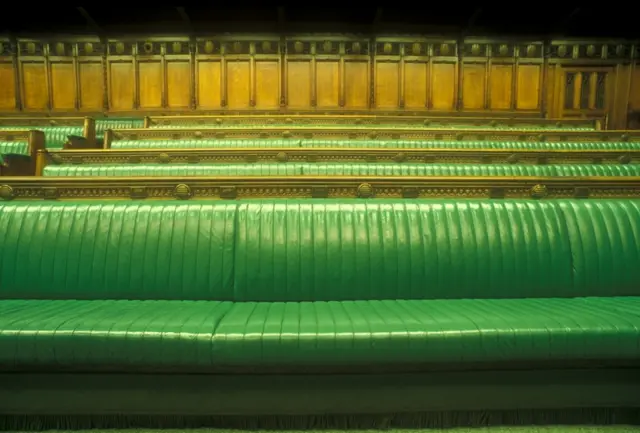
There are no statements or urgent questions in the House of Commons today, meaning the SNP-led debate on the future of Trident should get going at about 12:40 GMT in the Commons.
George Osborne delivers Autumn Statement and Spending Review
The chancellor says he has abandoned planned cuts to tax credits
Police budgets also escape cuts with economy boosted by £27bn windfall
Labour says working families will still lose out
Autumn Statement sets out state of UK economy and signals tax and welfare plans
Spending Review set out details of plans to cut government spending over next few years
Tom Moseley, Rajdeep Sandhu, Tom Espiner and Pippa Simm

There are no statements or urgent questions in the House of Commons today, meaning the SNP-led debate on the future of Trident should get going at about 12:40 GMT in the Commons.
Claire Bassett, the Electoral Commission's chief executive, told MPs on the committee that considerable effort had gone into being ready for the referendum.
Quote MessageObviously there is going to be a challenge for us organisationally if the date is a very long way off, maintaining momentum, but I'm confident we can handle that."
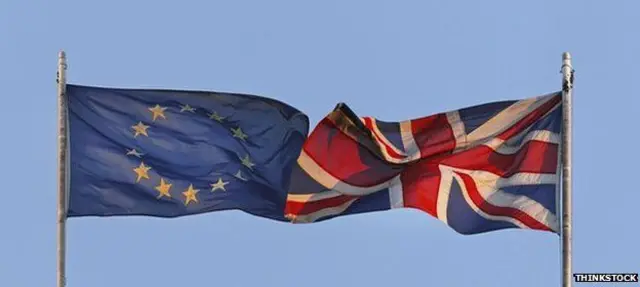 Image source, Thinkstock
Image source, ThinkstockThe Electoral Commission has told MPs that the lack of a firm date for the UK's forthcoming EU referendum presents a "risk".
The government has said it will hold an in/out vote before the end of 2017 but has not yet named the exact date.
Jenny Watson, the elections watchdog chairman, told the Public Administration and Constitutional Affairs Committee that the Commission had been planning for the referendum since the general election, and added.
Quote Message"It's probably true to say that the most significant risk is that we do not know when that poll will be... There's a great deal of planning we can do to mitigate against that risk and we are doing that work."
BBC chief correspondent tweets...
Allow X content?
This article contains content provided by X. We ask for your permission before anything is loaded, as they may be using cookies and other technologies. You may want to read X’s cookie policy, external and privacy policy, external before accepting. To view this content choose ‘accept and continue’.
BBC Newsnight diplomatic editor tweets...
Allow X content?
This article contains content provided by X. We ask for your permission before anything is loaded, as they may be using cookies and other technologies. You may want to read X’s cookie policy, external and privacy policy, external before accepting. To view this content choose ‘accept and continue’.
Norman Smith on NHS cash: Is it all good news?
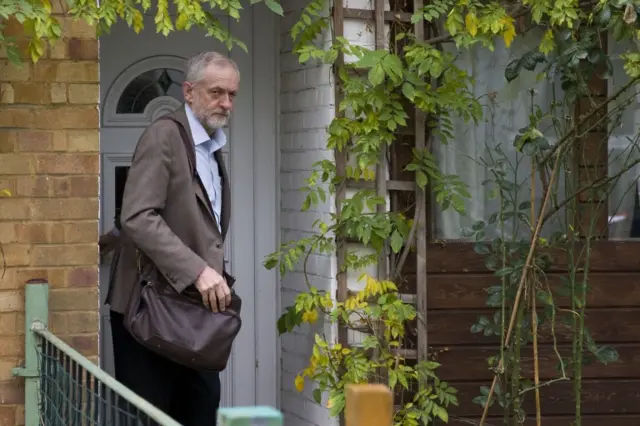 Image source, AFP/Getty Images
Image source, AFP/Getty ImagesA Times/YouGov poll of grassroots Labour members on Jeremy Corbyn's leadership is getting a lot of attention today. It suggests that 66% of party members think the Labour leader is doing "well".
The firm canvassed opinions from a sample of those who were entitled to vote in September's leadership contest, which saw Mr Corbyn romp to victory in the first round of voting.
Some 86% of people who cast a ballot for him were said to be happy with his performance.
The findings are at odds with the mood in the Parliamentary Labour Party, with many MPs seemingly frustrated with the party's direction under the new leadership and highlight the difficulties of launching any bid to oust him.
Cutting the number of councils could save up to £650m over 10 years, the Welsh government has claimed.
Public Services Minister Leighton Andrews confirmed plans to cut the 22 councilsto eight or nine.
The proposals to bring back bigger councils are broadly similar to pre-1996 arrangements.
The Draft Local Government (Wales) Bill published on Tuesday forms the basis of consultation but will not become law before the assembly election next May.
Front-line NHS services in England will get a £3.8bn, above-inflation cash injection next year, amid mounting fears about the pressures they face.
Commenting on the news, shadow health secretary Heidi Alexander said "the devil is in the detail" - and said the NHS was under "huge pressure".
Quote MessageWith hospitals facing a £2.2bn deficit this year, and demand going up, this money will simply be plugging the black hole that has emerged in NHS finances under the Tories."
Left Unity, a left-wing political party, has decided not to stand any candidates in upcoming elections, in order to support Labour leader Jeremy Corbyn.
At its weekend conference, the party voted to continue “as a radical left party, committed to supporting progressive developments in the Labour Party”, and rejected proposals to apply for affiliation to Labour.
But it said it will “temporarily suspend our national electoral work” and will not contest the Greater London Authority elections "but instead call for a Labour victory in these elections”.
BBC Newsnight political editor tweets...
Allow X content?
This article contains content provided by X. We ask for your permission before anything is loaded, as they may be using cookies and other technologies. You may want to read X’s cookie policy, external and privacy policy, external before accepting. To view this content choose ‘accept and continue’.
Alex Forsyth
Political correspondent
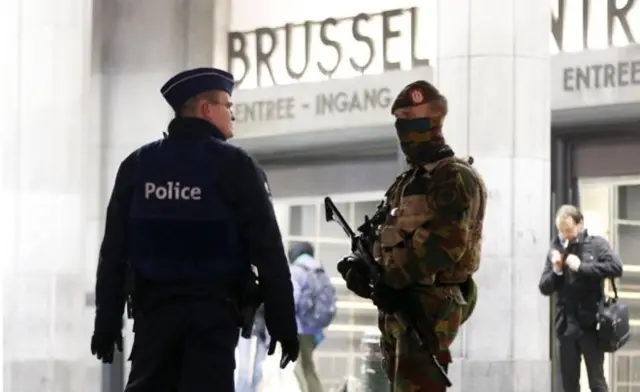
The security lockdown in Brussels since the Paris attacks has not stopped behind-the-scenes discussion of the UK's agenda for EU reform.
Over the past week officials from the European Council - the EU's top policy body - have held bilateral meetings with representatives from each member state to discuss Prime Minister David Cameron's demands.
I'm told aides of European Council President Donald Tusk went through each area of proposed reform, to establish where compromise could be reached and what would prove more difficult to negotiate, ahead of the UK's planned referendum on EU membership. That stage finished on Monday.
These so-called "confessionals" were a chance for the council to sound out each country's reaction to the letter in which Mr Cameron set out his wish-list for change for the first time.
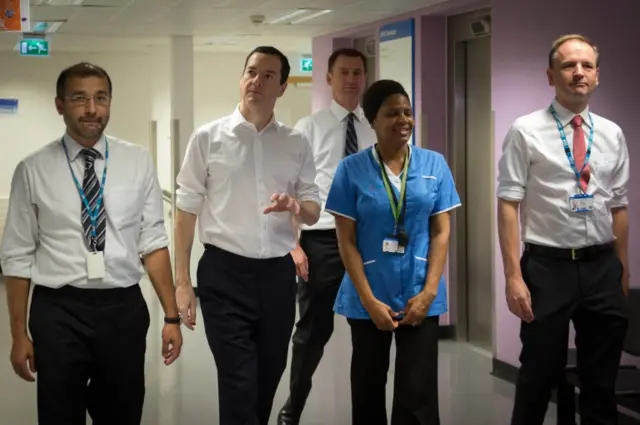 Image source, PA
Image source, PAThe government has announced that NHS England will receive an extra £3.8bn next year, above inflation. Scotland, Wales and Northern Ireland will also receive proportionate increases.
Speaking to BBC health editor Hugh Pym in a GP surgery in Streatham, south London, Chancellor George Osborne said: "We've promised that the people's priority will be this government's priority. And in this Spending Review we're making a huge £10bn commitment to our NHS."
Quote MessageWe're giving the money up front so the NHS can implement its own plan to improve services for patients. There will have to be savings elsewhere in government spending to pay for this but it just goes to show you can only have a strong NHS if you have a strong economy."
The chancellor added that he would set out tomorrow how the government plans to bring together the NHS with social care services.
The government's independent budget watchdog tweets...
Allow X content?
This article contains content provided by X. We ask for your permission before anything is loaded, as they may be using cookies and other technologies. You may want to read X’s cookie policy, external and privacy policy, external before accepting. To view this content choose ‘accept and continue’.
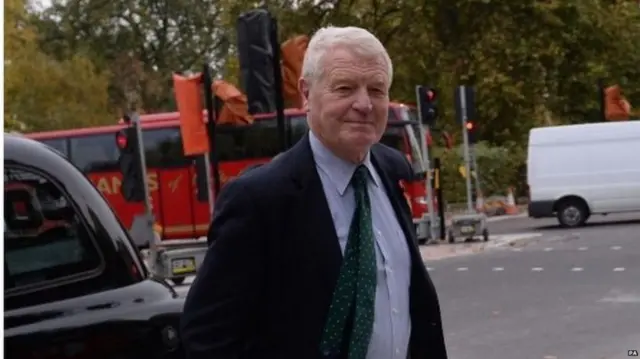 Image source, PA
Image source, PALord Ashdown has accused the government of failing to put pressure on Saudi Arabia and other Gulf states which he said were funding jihadism.
The ex-Lib Dem leader said cutting off jihadists' income should be a "crucial part" of the UK's strategy.
He claimed the Tories' "closeness" to Gulf interests was hampering this.
But he said his party may vote for RAF air strikes in Syria if they were lawful, enjoyed regional support and were part of a broader plan.
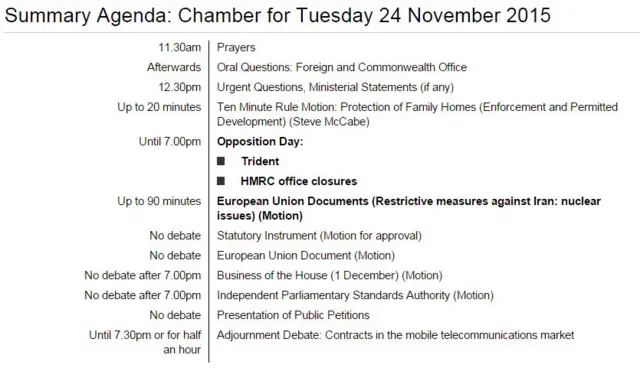 Image source, parliament.uk
Image source, parliament.uk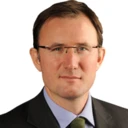 James Landale
James Landale
Deputy political editor
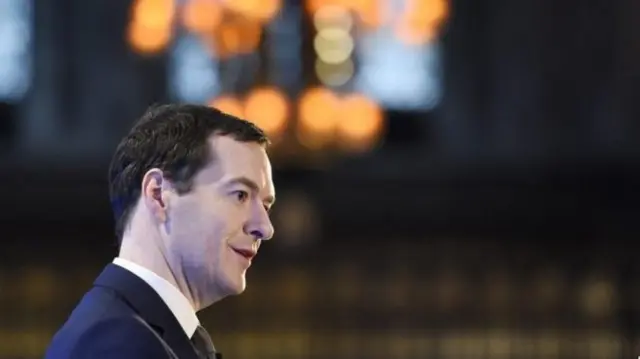 Image source, PA
Image source, PAThe next four years of this parliament and the framework for the next election will be shaped by the events of this week.
And yet the greatest political impact will come more from George Osborne's Spending Review and Autumn Statement than perhaps from David Cameron's decision to extend airstrikes over Syria or Labour's uncertainty over how to respond.
Clearly the security crisis prompted by the Paris attacks will not be solved overnight and will give a greater security edge to political debate for years to come. Not for nothing are ministers talking of national security in the same breath as economic security.
But the decisions the chancellor makes over how the state spends four trillion pounds of taxpayers' money over the next five years will have greater political resonance when voters go to the polls in 2020.
The chancellor tweets...
Allow X content?
This article contains content provided by X. We ask for your permission before anything is loaded, as they may be using cookies and other technologies. You may want to read X’s cookie policy, external and privacy policy, external before accepting. To view this content choose ‘accept and continue’.
Allow X content?
This article contains content provided by X. We ask for your permission before anything is loaded, as they may be using cookies and other technologies. You may want to read X’s cookie policy, external and privacy policy, external before accepting. To view this content choose ‘accept and continue’.
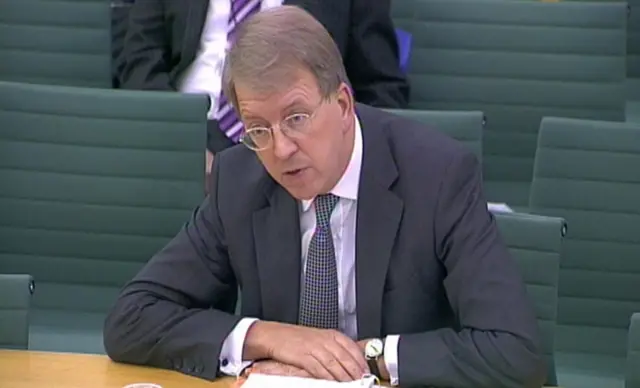 Image source, PA
Image source, PACharles Farr is to become the new chairman of the government's Joint Intelligence Committee, external, replacing Jon Day, who retires at the end of the month. Mr Farr was previously the counter-terrorism chief at the Home Office. Commenting on his appointment, he said:
Quote MessageThe range and complexity of national security issues facing the country makes this a challenging time to take on this role."
 Today Programme
Today Programme
BBC Radio 4
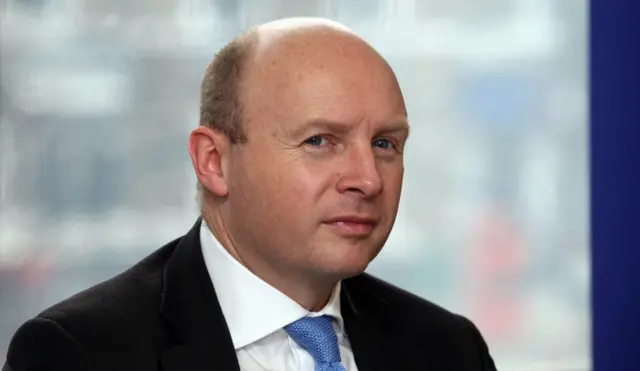 Image source, PA
Image source, PAFormer cabinet minister Liam Byrne has publicly revealed for the first time that he is the son of an alcoholic and he's pressing the government to work harder to help the estimated 2.6 million children who now live with a "hazardous drinker".
Speaking to Today, he's asked if this is difficult for him. "Yes. It hurts like hell." He says his father struggled with alcohol addiction for 30 years.
Quote MessageThat struggle, that addiction, hurt us as a family, and before the election it killed him."
His reasons for speaking out, he says, is because he wants to "break the silence" about it to "break the cycle" of alcoholism that's "cascading down the generations".
"We need to normalise the conversation" to make progress, he tells Today - saying the language used after Lib Dem MP Charles Kennedy's death, such as battling "demons", are unhelpful.